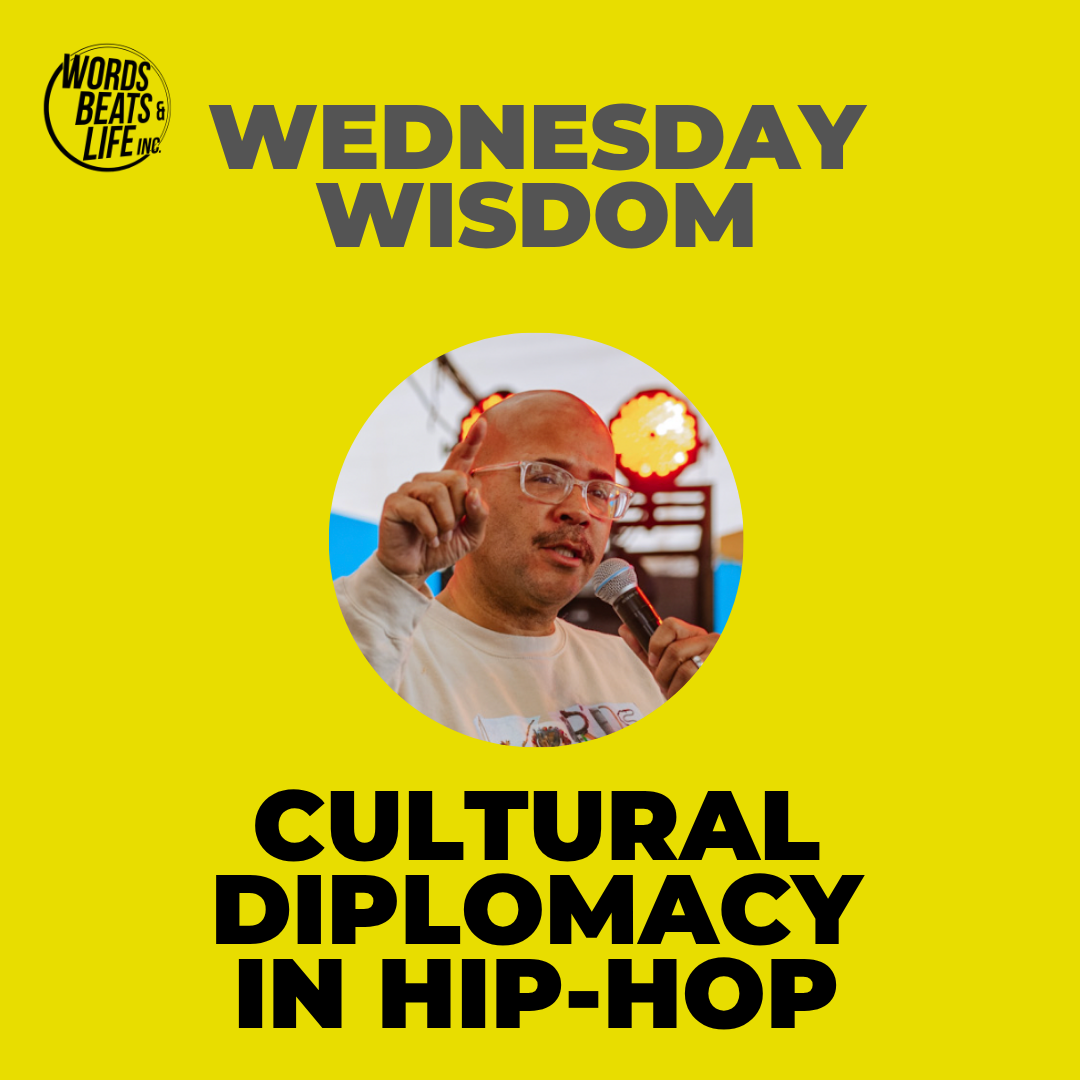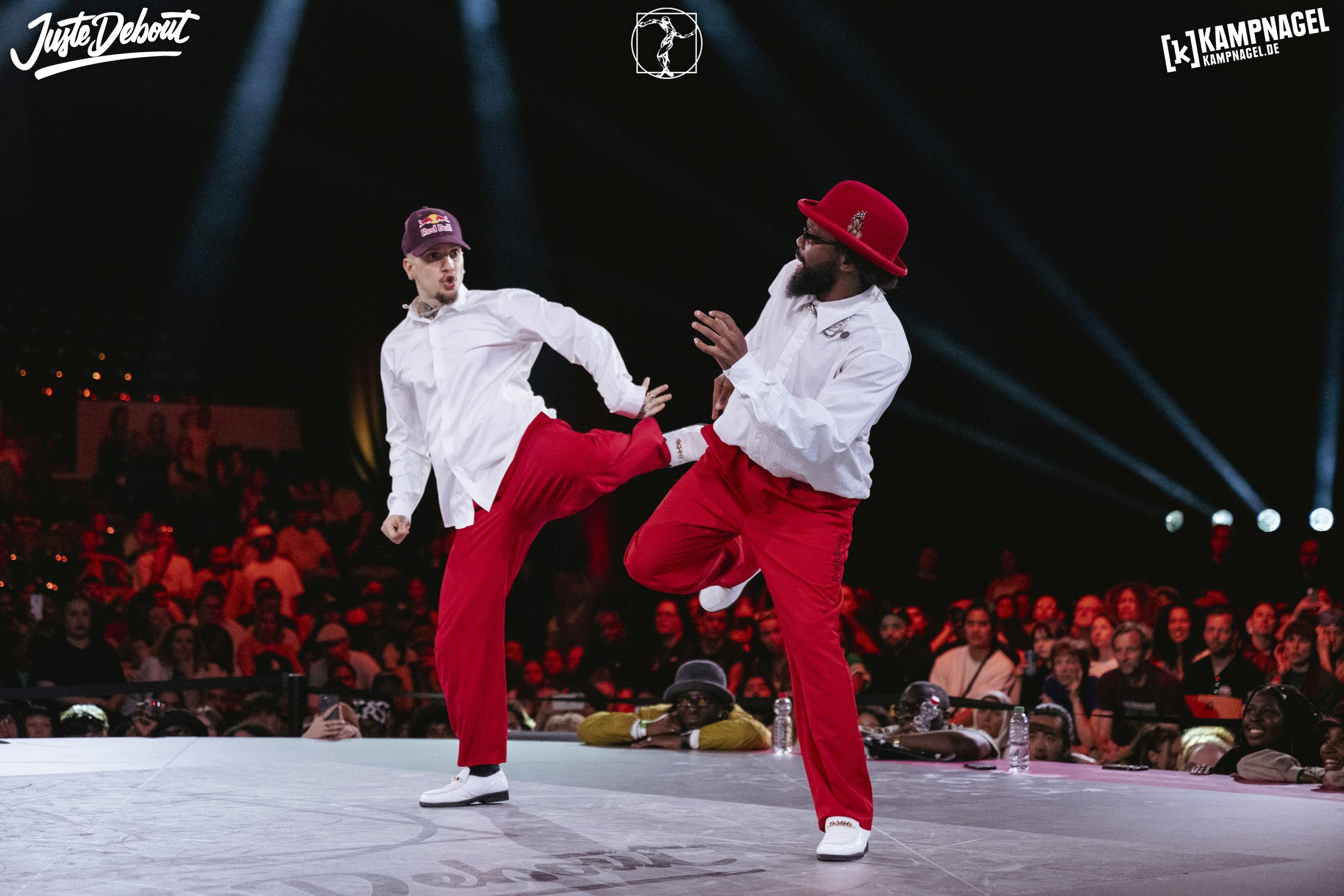Can’t Stop the Prophet - Babaluku, LugaFlow, and the Bavubuka Dynasty
When you are in the presence of Babaluku, be it virtual or in person, the image that comes to mind is that of a prophet. It's no surprise that the eldest son of a preacher in Kampala would be adept at serving gospel, testimony, and also visions of the future. He is known for many things, but most importantly, lugaflow, the unique style of Ugandan rap that is more than rhyme, but a philosophy and a way of life, is what has sustained him, helped him create community and also hope and opportunities, not just for his fellow Ugandans but hip-hoppers all around the world. On this day, he's speaking to me from a small business and cafe in Kampala, and his glow radiates even through a zoom screen thousands of miles away. Babaluku embodies positive spirit, action, and community and you can feel it even in his smile as he recalls how it all began.
"I grew up in church, so community organizing was always close. You watch your parents mobilize people. You're in a community home all the time. Your house was a community house. I usually take it back to that experience of my childhood growing up, before I would really get into the culture, my father being a preacher. It gave me an opportunity from an early age, to appreciate different cultures, different struggles, different challenges of humanity, but practically, me being young, I would bring a lot of young guys who wanted to rap to my bedroom. I brought the church equipment to my bedroom and they wanted to rap all day. They had a chance to get on. I think that motivated a lot of young people to come around my house, and within that space, people in town would hear about this preacher's kid who invites people over to jam."
While born in Uganda, he grew up in Fort Erie, Ontario, and later moved to Vancouver, where he still resides. Re-connecting literally with his roots, returning to Uganda sadly upon his father's passing, it was that return home to Kampala that also re-introduced him to the idea of rap and letting young people have a space to express themselves. It was in these jams, which were both musical, as well as cultural and even spiritually minded, that he began to realize that there was much more at play, and much more to be done. The biggest realization came as he represented Kampala in a competition in Tanzania, where he and the Ugandan contingent were the only ones who weren't spitting in their native tongue, but English. It was after that trip, that he and his compatriots returned to create the lugaflow, which represents hip-hop in indigenous languages. This was 1996, and as all emcees are wont to do, he big-ups his neighborhood, Makindye, as a place he gives props to and where his broader work in the community would start.
"We came up and started being very radical in our conception because we wanted to show people that now we can be ourselves. Especially after watching our brothers in Tanzania, now we can actually take the challenge of rapping in our native dialects and be able to show our own identity and that is the biggest part that gave us the opportunity to look into what the culture would become in the future, because not only did it push us into activism and consciousness of writing conscious music, but it gave us a starting path to want to learn. So there was a long journey to literally take this message to the masses that it was about our voice to empower ourselves and the communities we came from."
That gospel was spread for ten years, ultimately nurturing new generations of Ugandan hip-hoppers to embrace their authentic selves and voice in their own expression. Babaluku and his crew, Bataka Squad, laid the groundwork for young Ugandans to embrace their native identity and, as Babaluku states, "tap into leadership and reclaim community building". This became the evolution of the Bavubaka Foundation and Bavubaka Dynasty that harnessed this energy to help mentor and support young people in Entrepreneurship, Arts, Entertainment, and more.
From his introduction to now, music and culture are stepping stones to empower and build. As someone who has decades in the culture, it felt important to ask him what this 50-year anniversary meant to him and the continent.
"What the culture has meant for me is guidance. For me there was a spiritual alignment with it, to keep something in us alive, the highest frequency of the culture which is the gift. It has given us the opportunity to draw (on) our experiences and use them as opportunities for others to rise as we build ourselves, and for me when I think about hip-hop at fifty, knowing where it's come from through my participation, I can only define hip-hop as life itself. It gives us the ability to be god-like in our own domains, in our own spaces. We become creators, creators of movements, creators of cultures, ideologies, philosophies, and other ways we choose to identify, so people should be grateful that it's here. The idea that it has allowed us to preserve a black voice is powerful."
As we conversed further, it was clear that for Babaluku, hip-hop is more than music, more than art, more than entertainment. It is the literal energy that has the ability to shape and change reality. With fifty years in the bank, I asked him, in the spirit of the 2040 vision of WBL, what could he foresee for hip-hop in the next fifty years.
"When you talk about my crystal ball and looking at the next fifty years of the culture, it is pure community leadership at its finest. (I see) many emcees in positions of power, and we are hoping that when they are in those positions of power they can restore the community back. Apart from the (emcees) being in positions of power I also see the learning spaces evolving. That human-centered learning is back at the forefront to strengthen the foundation of who we are as humans.”
So in the next fifty years, I see hip-hop leaders, hip-hop billionaires, community gatherings, I see wealth amassed, and community trusts built to further ideologies of where the community has come from. I also see it as a powerful tool to build bridges now. So hip-hop at fifty when we get to another fifty our children will be the leaders, pushing art, pushing businesses, and innovating new solutions.
Babaluku is a true believer, and his mission has been clear to convert as many others as possible to his gospel. He also is a true ambassador, and before we parted he wanted people to know this about the culture of hip-hop on the continent.
“We are building something for generations to come. We are in a culture where a lot of people thought it was about growing the wealth. But, as much as it is about wealth, to end that poverty line that you are under, it's also important to raise your spirituality, because without spirituality there's no culture. Where we can go is limitless."






